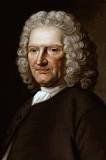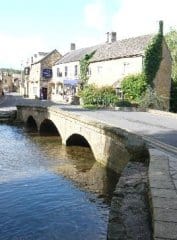
In the third and final instalment of our study of Benjamin Beddome, we want to look at his hymnody.
At the time of Beddome’s death in 1795, almost his only publication was his Scriptural Exposition. In the years that followed, however, a good number of his sermons were published as was a volume of 830 hymns.
It is noteworthy that close to one hundred of these hymns were still appearing in hymnals at the end of the nineteenth century, though today only a handful are still being sung.
Extraordinary person
Robert Hall Jr spoke for many of his fellow Baptists when he said of Beddome’s gifts as a hymnwriter: ‘Mr Beddome was on many accounts an extraordinary person…
‘Though he spent the principal part of a long life in a village retirement, he was eminent for his colloquial powers … as a religious poet, his excellence has long been known and acknowledged in dissenting congregations.’
Beddome did not write his hymns with the intention of ever getting them published. He was in the habit of preparing a hymn to be sung at the close of the morning worship service, which would pick up the theme of his sermon.
This practice prompted Horton Davies to describe Beddome as an ‘indefatigable sermon summarizer in verse’. However, he did allow thirteen of his hymns to be published in A Collection of Hymns Adapted to Public Worship (1769), a hymnal edited by fellow Baptists John Ash (1724-1779) and Caleb Evans (1737-1791).

Twenty or so years later, thirty-six of them appeared in the first edition of John Rippon’s A Selection of Hymns from the Best Authors (1787). It was more than twenty years after his death that Robert Hall Jr supervised the publication of the entire collection of 822 hymns and 8 doxologies.
Doctrinal depth
Given the sermonic basis of the vast majority of Beddome’s hymns, it is not surprising to find that many of them are strongly doctrinal. God in Christ Jesus is a good example.
In the dear person of his Son,
The Father stands revealed;
And he who truly knows the one,
The other has beheld.
In Christ as in a glass we see,
Unawed and undismayed,
The glories of the Deity,
Transcendently displayed.
Here mingled beams of truth and grace,
In all their beauty shine;
Angels and saints enraptured trace
The vision so divine.
Experiential
This admirable clarity of doctrinal expression is never divorced from an experiential focus. In View of Christ’s sufferings for instance, both are obvious.
Jesus, when faith with fixed eyes,
Beholds thy wondrous sacrifice,
Love rises to an ardent flame,
And we all other hope disclaim!
With cold affections who can see
The thorns, the scourge, the nails, the tree;
Thy flowing tears and dewy sweat,
Thy bleeding hands, and head, and feet!
Look saints, by faith, and view his side,
The breach how large, how deep, how wide!
Thence issues forth a double flood,
Of cleansing water, pardoning blood…
Thus could I ever, ever sing,
The sufferings of my Lord and King;
With growing pleasure spread abroad,
The mysteries of a dying God.
The second stanza resembles When I survey the wondrous Cross, in which Isaac Watts (sometimes called the ‘father of English hymnody’) calls the worshipper to
See from his head, his hands, his feet,
Sorrow and love flow mingled down …
The impact of Beddome’s hymns
Among the few of Beddome’s hymns still being sung today is the one which begins ‘Father of mercies, bow thine ear’. It is a prayer for those called to the preaching of God’s Word.
Father of mercies, bow Thine ear,
Attentive to our earnest prayer;
We plead for those who plead for Thee,
Successful pleaders may they be!
Clothe, Thou, with energy divine,
Their words, and let those words be Thine;
To them Thy sacred Truth reveal;
Suppress their fear, enflame their zeal.
Teach them aright to sow the seed,
Teach them Thy chosen flock to feed;
Teach them immortal souls to gain,
Nor let them labour, Lord, in vain.
Let thronging multitudes around
Hear from their lips the joyful sound,
In humble strains Thy grace adore,
And feel Thy new-creating power.
Let sinners break their massy chains,
Distressed souls forget their pains;
Let light thro’ distant realms be spread,
Till Zion rears her drooping head.
The second to last line of this hymn, ‘Let light thro’ distant realms be spread’, was a challenge to Baptists of Beddome’s day. Far too many were inward-looking, concerned primarily with the preservation of their own church heritage and lukewarm when it came to evangelism.
In the final two decades of the eighteenth century, however, this situation radically changed. There was an influx of fresh life that transformed many of their churches and made them outward-looking and vitally involved in vigorous evangelism at home and abroad.
Reviving
The story of this reviving has been told elsewhere, but there is little doubt that Beddome had a hand in it. He exemplified a faithful ministry, which sought to pass on the lineaments of orthodox Christianity. He encouraged younger men like John Sutcliff (1752-1814), who played a central rôle in the revival.
He was a leader in evangelical catholicity, not fearing to associate with men like George Whitefield, when a good number of his contemporaries had grave doubts about the Anglican evangelist. All these things helped to clear away stumbling-blocks in the pathway of revival.
And then there were his hymns! Consider for a moment the influence of his hymnody.
‘Let light … be spread’
As Beddome’s fellow Baptists sang such stanzas as the final verse of Father of mercies, bow thine ear, their hearts would surely have been drawn to reflect on the need to engage more fully in evangelism.
In particular, the line ‘Let light thro’ distant realms be spread’ would have been a great rebuke to the parochialism of many Baptist congregations.
Another hymn reflects on the fact that the British people possessed the Scriptures, God’s divine revelation. It is just as pointed:
Ye British Isles, who have this word,
Ye saints who feel its saving power,
Your efforts join with one accord,
To send it forth to every shore.
Equally direct and terse are these lines from two other hymns:
Lord, send thy truth to every land,
Let pagans feel its mighty power.
Let Europe’s sons to India’s shores,
This sacred volume send.
Between the times
Thus Beddome’s life and hymnody played their own small part in the revival of the Baptist community to which he devoted his ministry. It was very much a ministry between the times — the time of Baptist advance in the seventeenth century and that of revival in the final decades of the eighteenth century.
Nevertheless, his life and ministry are an eloquent example of the truth of the concluding lines in George Eliot’s Middlemarch: ‘That things are not so ill with you and me as they might have been, is half owing to the number who lived faithfully a hidden life, and rest in unvisited tombs’.










